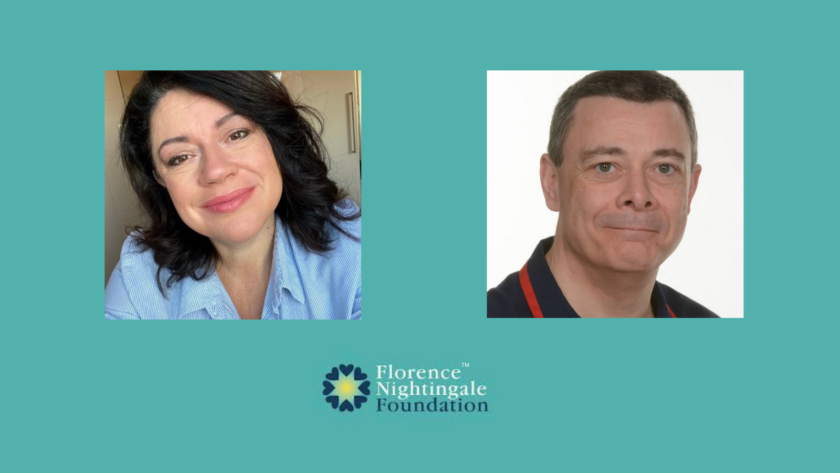
Our new partnership with the Digital Health Chief Nursing Information Officer Network is a very exciting step forward for FNF. Simon Noel, Chief Nursing Informatics Officers at Oxford University Hospitals NHS Foundation Trust, and FNF scholar Dione Rogers, Deputy Chief Nurse/Chief Nursing Informatics Officer at Barking, Havering and Redbridge University Hospitals, are leading the digital movement and putting their energies and influence into getting the clinical workforce digitised. We spoke to them about their roles and how they want all nurses and midwives to embrace digital.
“Dione and I have been recently elected to the digital health advisory panel,” Simon tells us. “The idea is for us to provide a clinical nursing insight into how digital is used within acute health care trusts and to advise and provide leadership in how the evolution of the nurse informatics role is occurring.”
Simon described how nursing had historically not benefited enough from development opportunities: “I think we’ve been suffering a little bit,” he says. “There’s been lots of advanced leadership from the medical side, but not as much from the nursing side. So now we’re getting a better voice in what professional digital nursing should look like. What we would really like to do is make sure that the playing field is uniform and make sure that trusts see nursing and digital as a career pathway.”
“We still have a lot of challenges around our presence in digital health,” agrees Dione. “We are the biggest workforce in the health profession in the NHS, but we have the least voice in the digital health space. One of the most tangible metrics is growing our membership. So, at the minute we have around 400; we’d like to go to 4,000.”
As a FNF scholar, Dione has insight into how digital in nursing can evolve. “Dione is in a perfect position,” Simon explains. “It’s having that professional strategy, that professional understanding of what nursing is about in relation to digital, which is essential to take it forward.”
Their work in digital has made an impact at home too, as Dione explains: “Quite a lot of my family are in healthcare. My sister-in-law said to me, ‘I’ve got a confession: I absolutely love it. I don’t think I could do my job without it now. I’m able to prioritise my patients, I’m able to refer patients to a virtual service, I’m able to make decisions quicker.’ And I hear that time and time again.”
“And from a personal level, I’m newly diagnosed dyslexic and it’s helped me to really work differently,” continues Dione. “I think accessible standards are a big thing – lots of what we do now can have audio functions and translation so it can translate patient letters into hundreds of different languages; and, you know, the infamous doctors’ handwriting…”
“I’ve been working with digital technology in nursing for about 20 years now and I always say it won’t necessarily cut down on your workload,” adds Simon. “But as Dione pointed out, information you need to give care can be made much more available. You can understand the patient more effectively and as a manager it can provide the information you need to monitor performance.”
As Dione states, this digital revolution is for everyone: “I think that’s where the network really sees our influence; not just people who want a career in digital nursing, but for all nurses to really embrace digital skills.”
“It’s enabling us to have conversations to understand what we need to change to help the clinical teams,” sums up Simon. “Because after all, they’re the important ones and they’re the people who are providing the care.”
Simon and Dione will both be taking part in Digital Health Rewired 2022 this month at London’s Business Design Centre. FNF’s Deputy Director Lucy Brown and Senior Technologist Robert Cutforth are also hosting a workshop at the event. Find out more here
Follow Simon @SkipTyler2 and Dione @Dionrog44 on Twitter